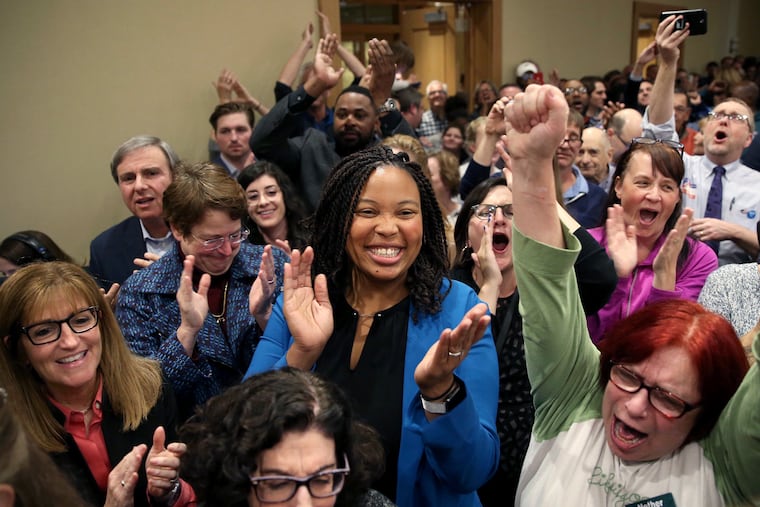Republican Party has lost touch with suburban voters. Just look what happened last Tuesday. | Opinion
Much like our country as a whole, suburban America looks different than it did 50 years ago and their kitchen-table issues have evolved.

Tuesday’s election results spell out a trend that’s escalated from red flag to crisis point for the Republican Party.
Not that we should be surprised. This is a fire we have seen slowly materializing before our eyes. The recent election in North Carolina’s 9th District is a perfect example. What should have been a landslide victory resulted in Republican Dan Bishop barely squeaking by, losing the largest historically GOP suburban area, Mecklenburg County, in the process.
Now five states are setting off five-alarm fires. Middle America’s historically bellwether seats in Hamilton County, Indiana, and St. Louis County, Missouri, shifted blue for the first time in decades. While Republicans managed to hang on down ballot, Kentucky’s gubernatorial was an unmitigated disaster. Matt Bevin lost Jefferson County, the most populous county in the commonwealth, by a staggering 100,000 votes; that’s triple the number of ballots the GOP lost in 2016. Campbell, Kenton, and Boone Counties, suburban Kentucky mainstays that makeup 10% of the population, all voted blue, too. Even the coal county Democrats went back home after voting for Trump in 2016.
After Tuesday night, Virginia’s historically purple state now burns bright blue. For the first time in 25 years, Democrats will have full control of the statehouse and the power to redistrict Virginia into a Democratic stronghold for at least the next 10 years.
A blue wave also flooded suburban Pennsylvania. The Bucks County Commissioners Board is occupied by two Democrats and one Republican for the first time since 1983 and in Delaware County all five seats on the Delaware County Council, a historically Republican bastion since the Civil War, turned left.
Why the suburban backlash? Put simply, the Republican Party no longer knows the suburban voter. Much like our country as a whole, suburban America looks different than it did 50 years ago and their kitchen-table issues have evolved. Republican Main Street Partnership (RMSP) identified this problem back in 2017.
When the Women2Women Conversations Tour was born years ago, we sat down with hundreds of suburban women in nine cities across the United States, giving them a chance to speak for themselves and tell us the biggest issues they face today. This data have been shared far and wide. Health care is the number one concern of suburban women, and issues like equal pay and paid child care continue to outrank more topline news like immigration and the environment. Perhaps even more telling is that the majority of the suburban women we talk to value honesty and collaboration in their leaders.
With this in mind, our party must rise above the politically motivated fray that may consume headlines but do not resonate in the suburban areas we need most. Our party must urgently address these issues by working across the aisle to get meaningful, common sense solutions done if we are to have any hope of returning to the majority in the near future.
This is a clarion call to the GOP: Stop fighting and start fixing. We need to get our house in order or it will burn down around us.
Sarah Chamberlain is the founder of the Women2Women Conversations Tour and the president and CEO of the Republican Main Street Partnership.